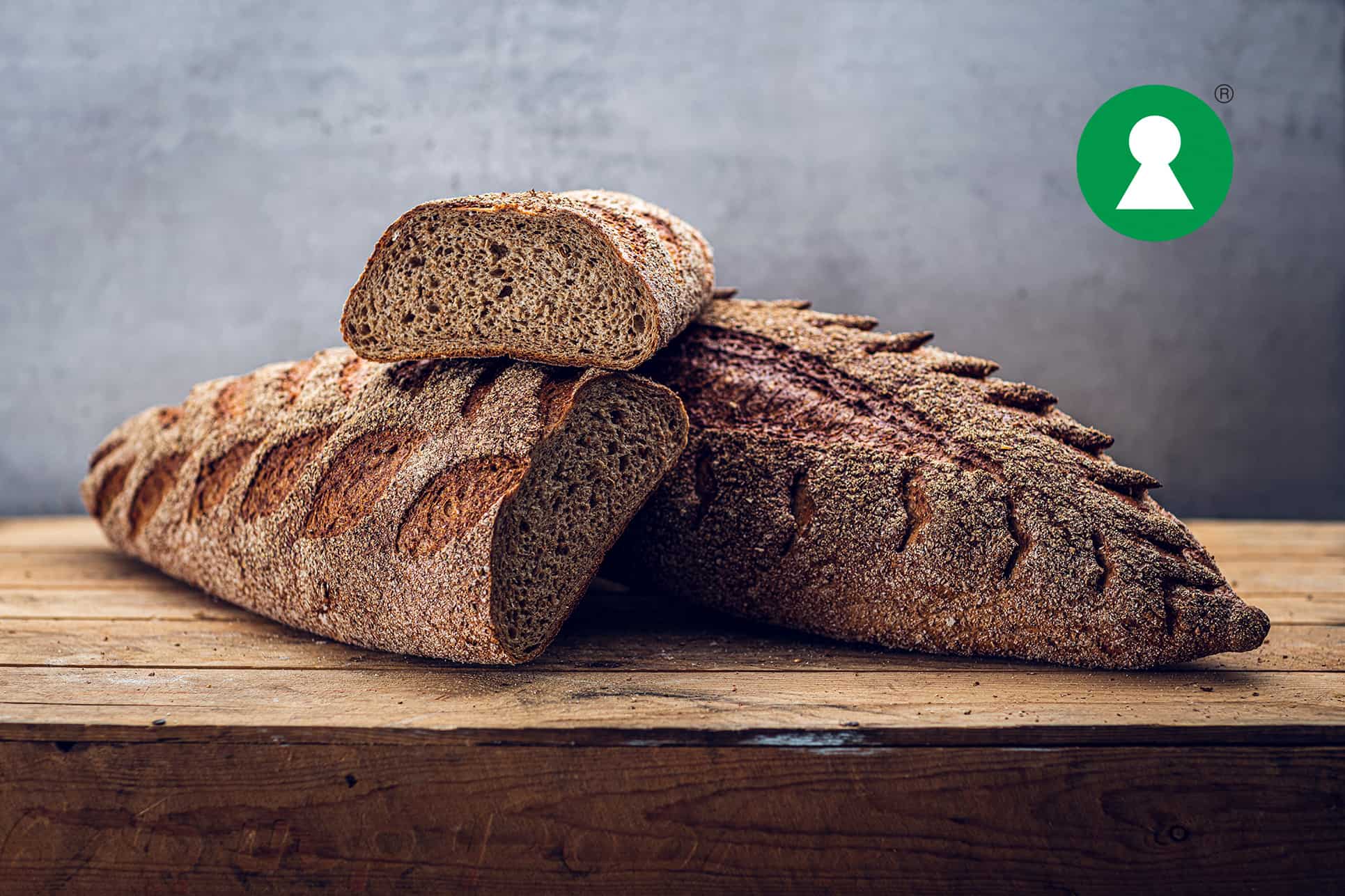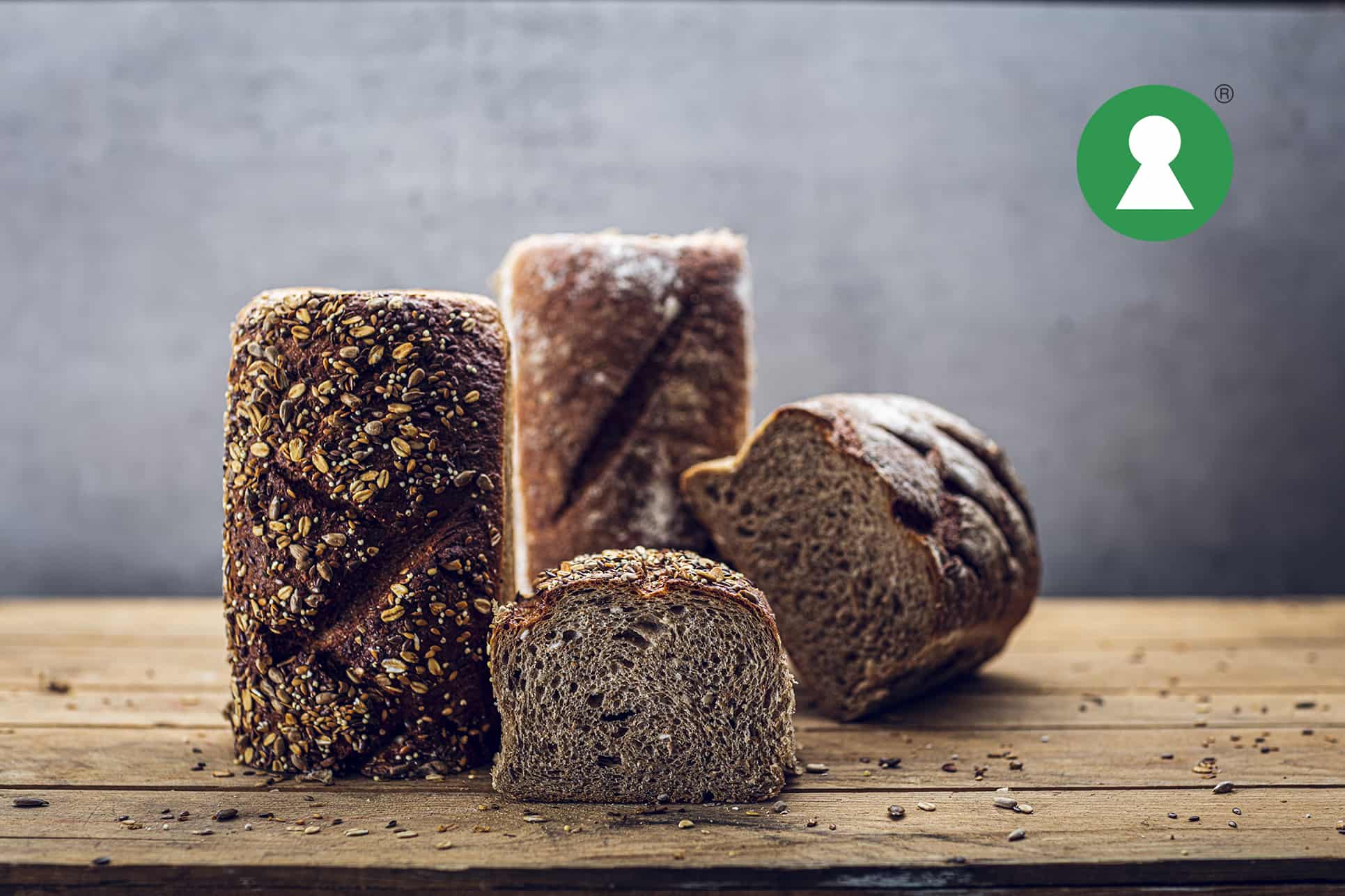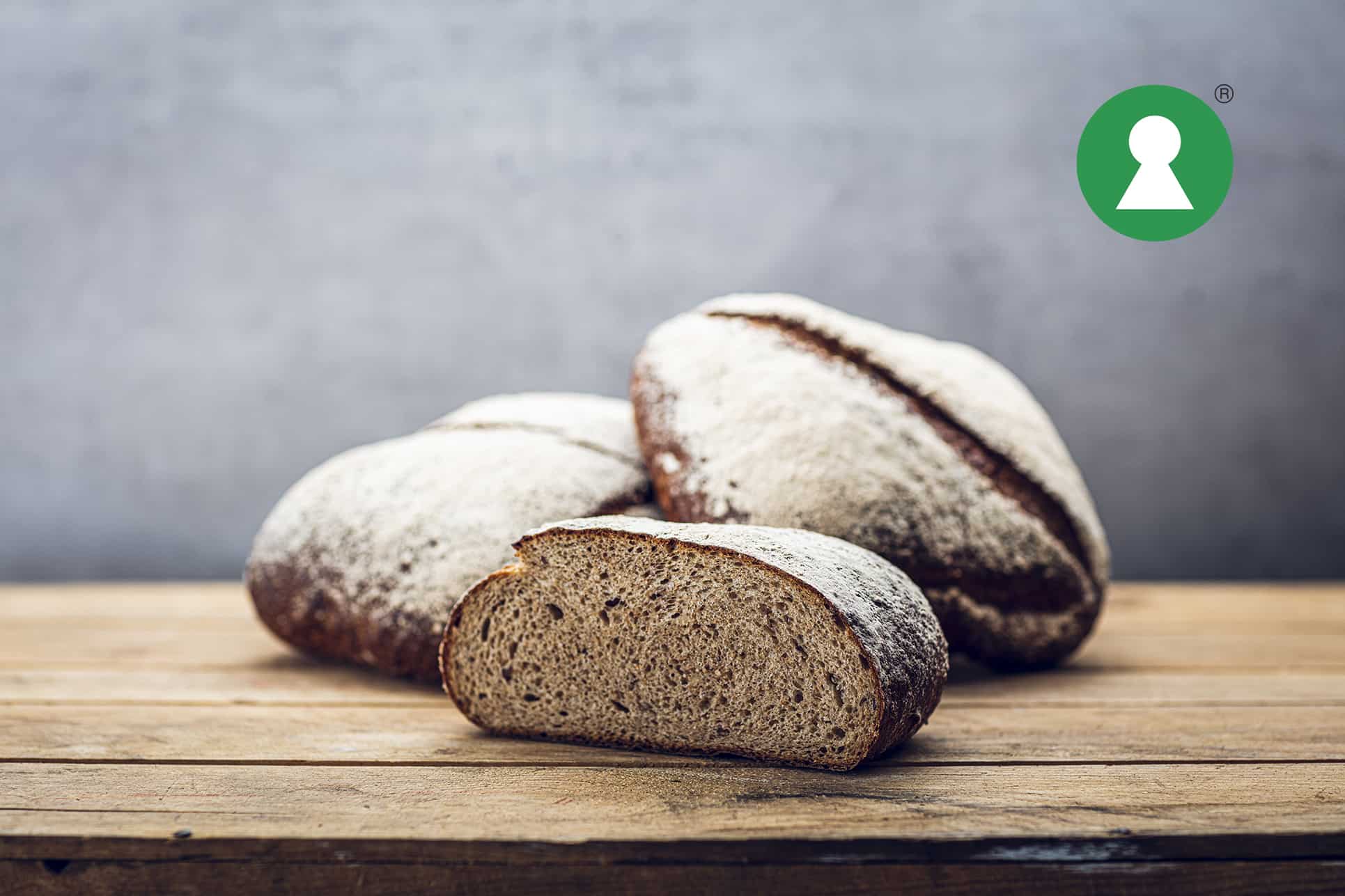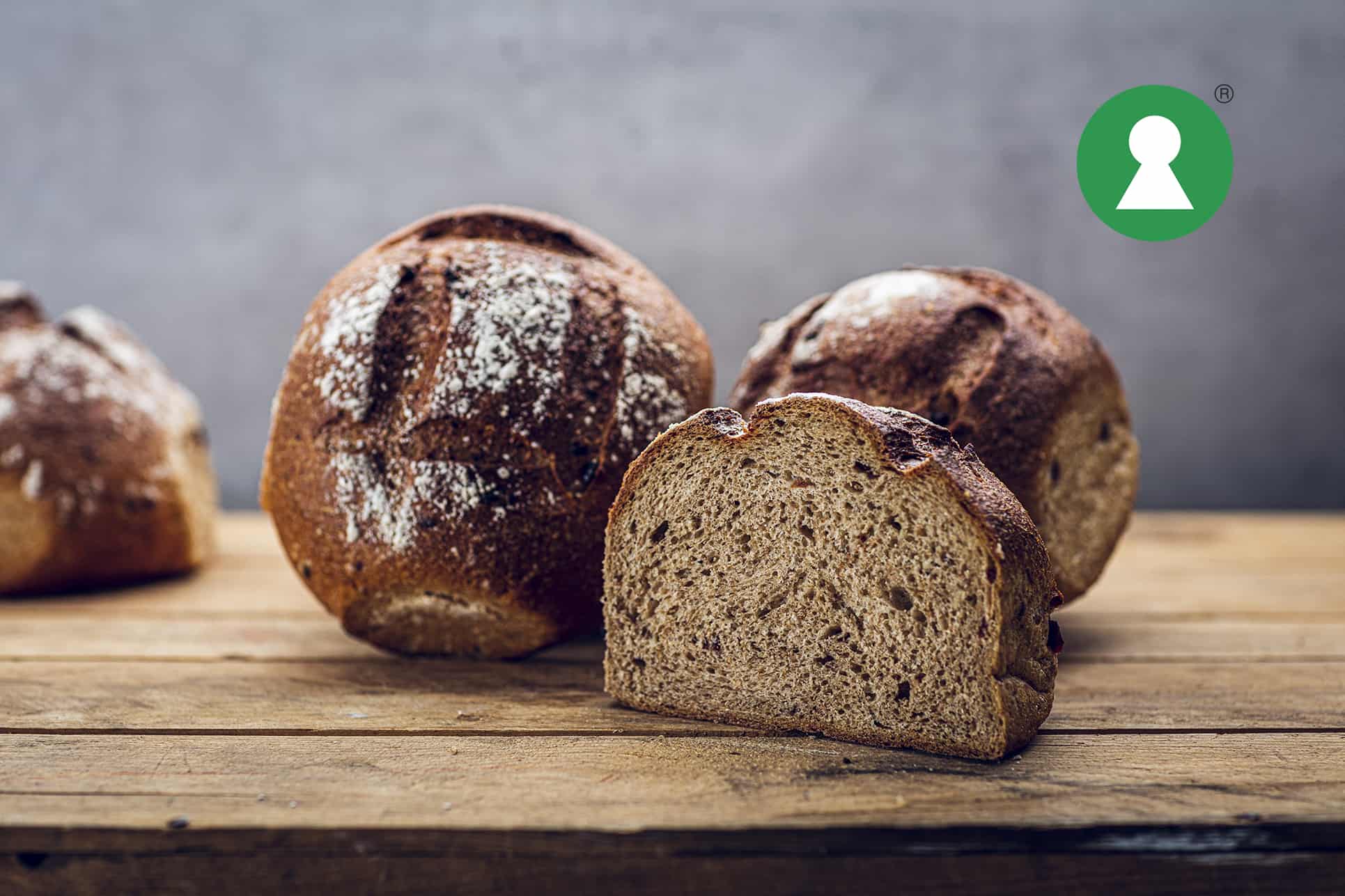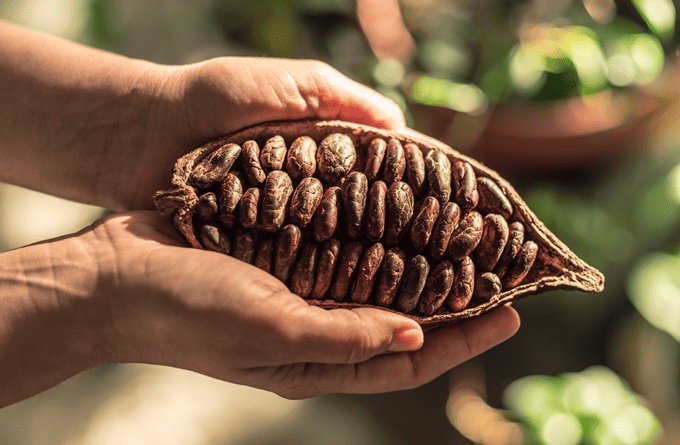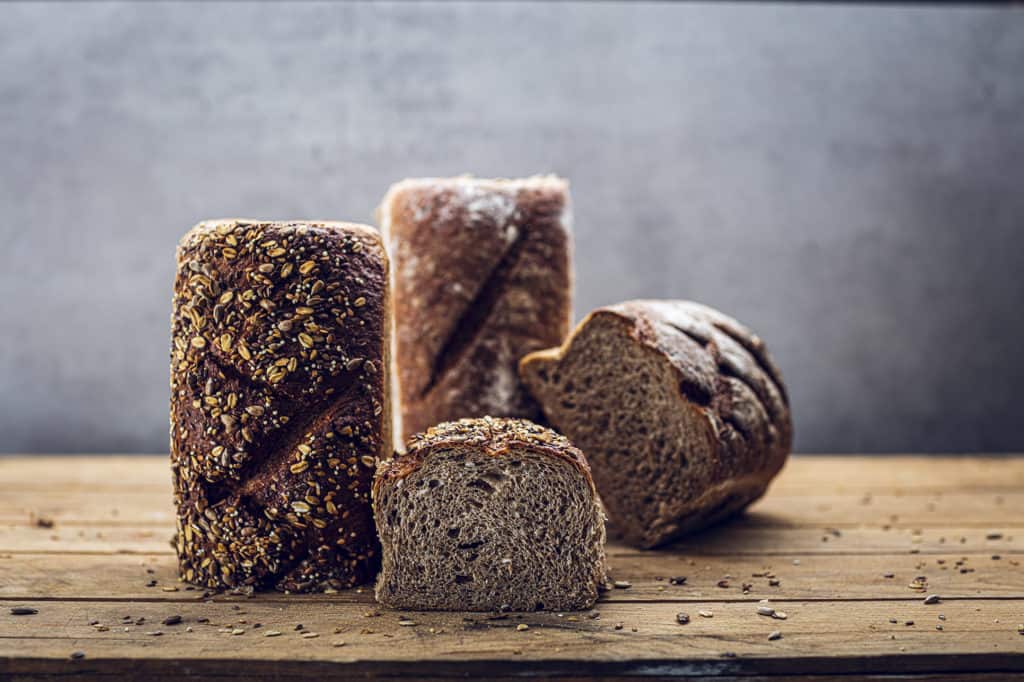
Good and healthy options in the bread counter continue to be of high interest to consumers. Whole grain bread has naturally settled down, which is a positive trend having in mind all its nutritional and healthy claims. Have you made the move in your bread range?
Eating a diet rich in whole grain is an simple way to move towards a healthier lifestyle. Research shows that more than 30% of UK consumers look for bread that is high in fiber, a figure likely to be even higher in other geographical regions. The same report suggests an even stronger trend towards a healthier diet fueled by the pandemic.
If whole grain bread does not already represent a considerable part of your range, now is the time to make the move. At Bakels, we have developed a selection of recipes based on our popular bread bases packed with whole grain and nutrition. Discover Chia & Oat, Jogga Bread Base and Gourmet Bread Base. All easy to produce and deliver the best value.
Good to know when baking with whole grain
A whole grain is a grain that contains the whole kernel of for example wheat, rye, oat and barley. It comes in the form of flour or as kernels. It is in the shell and sprout where you will find the most desirable nutrients. The less processed a grain is, the more of its natural benefits it will retain.
So when baking with whole grain and whole grain flour, all parts of the grain will be used in the bread. Therefore, whole grain bread offers more health benefits compared with processed flour.
It might be good to know that at least 22% of the total weight must be whole grain, to label a bread as whole grain. We have developed a serie of recipes for your inspiration. Click here! If you are reworking your own recipes and are in any doubts, feel free to contact us with questions.
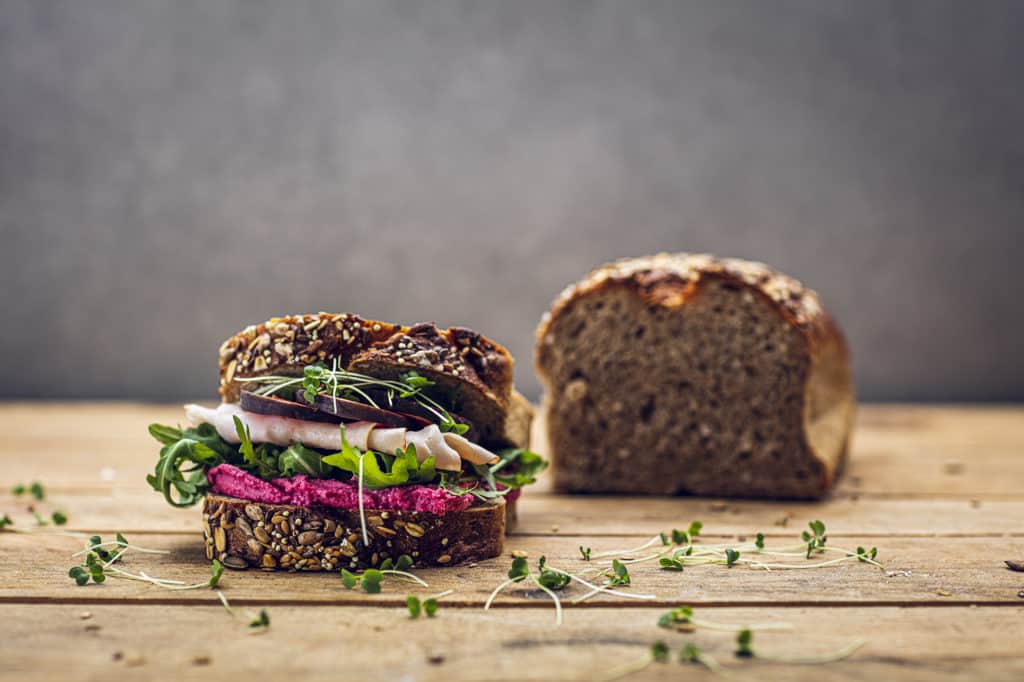
Health benefits of eating whole grain
What are all these healthy aspects of whole grain? Four of the most significant benefits are as followed.
High in nutrients
Whole grain delivers many important nutrients; such as fiber, vitamins, proteins, antioxidants and trace minerals like iron, calcium, magnesium, folic acid and phenols.
Help you to weight control
The fiber in whole grain fills you up and prevents overeating. High in fiber products are in general considered to support weight control and prevent obesity.
Lower your risk for lifestyle diseases
Whole grain has been shown to reduce the risk of heart diseases and type 2 diabetes. It also has a positive impact on the blood sugar curve, cholesterol levels and blood pressure. Some studies even show it may also reduce the risk of certain types of cancer.
Strengthening the immune system
Whole grain nourishes the good intestinal bacteria that in many ways contributes to strengthening the immune system and promotes a good mental health. Whole grain diets can help to maintain regular bowel movements and promote the growth of healthy bacteria in the colon.
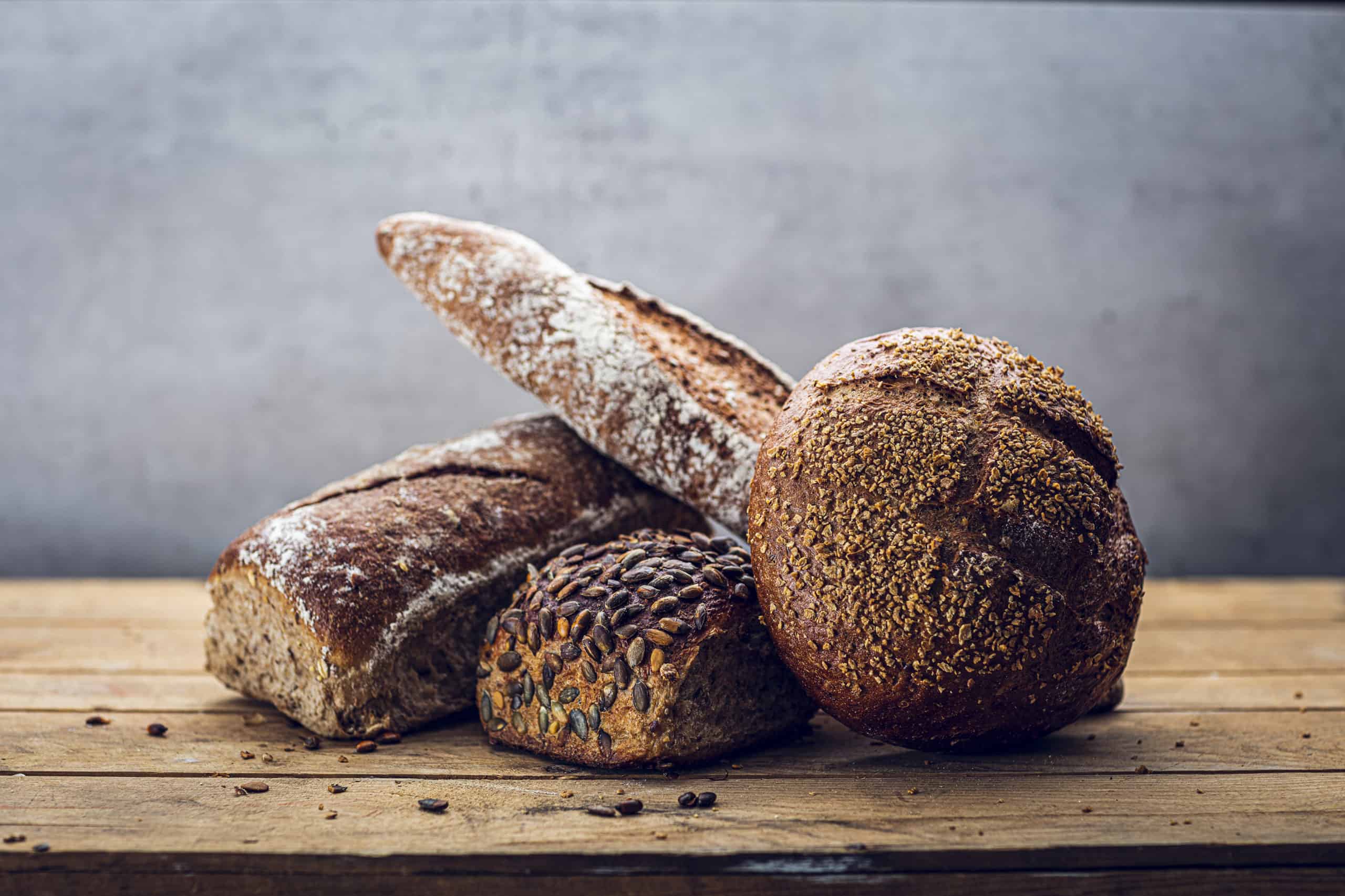
Whole grain: a good choice for the climate
Furthermore, whole grain is one of the most climate-smart foods you can get. It uses very little water during all the production leads, and grains in general have a long shelf life. There are few foods that has such a good impact on health AND the climate, as whole grain does.
Whether you are looking for a climate smart option, new trends to influence your bread lines or an efficient baking process, we can help both with ingredients and technical support.
Bake whole grain bread with Bakels bread bases!
Click through to our recipes for healthy and delicious whole-grain bread baked with our most popular bread bases below!
Do you already have the bread bases in your range perhaps? Or do you want to order a sample? Either way, you can start offering your customers these whole grain bread baked with the same bread base (and which are also keyhole labelled!). Pretty good, right?
Feel free to contact us with questions or for further information about our products. Read our recipe folder online here below.
Sources:
Mintel – Attitudes towards Healthy Eating (UK – February 2020)
Mint el – Bread inc. Impact of Covid 19 (UK – September 2020)
Brödinstitutet, Sweden


